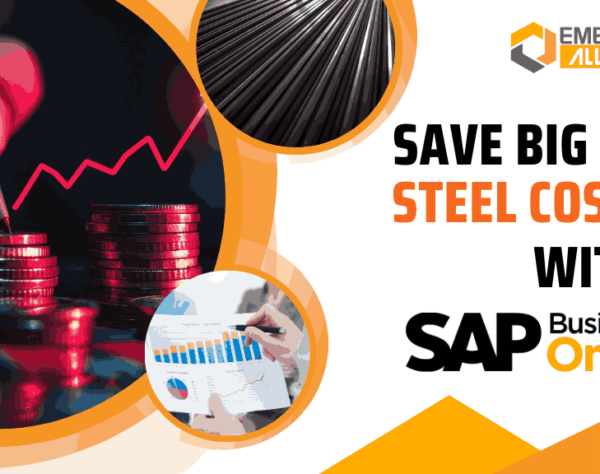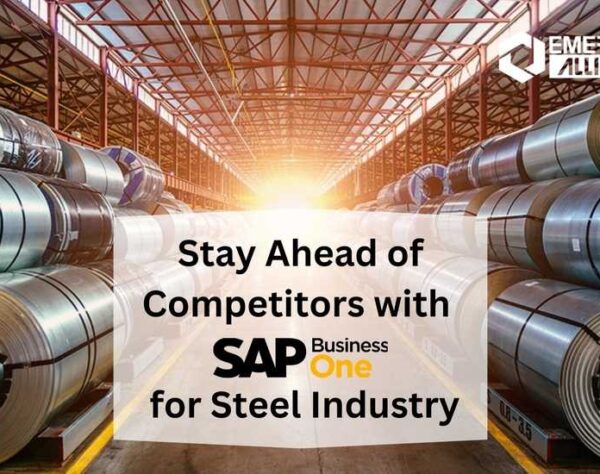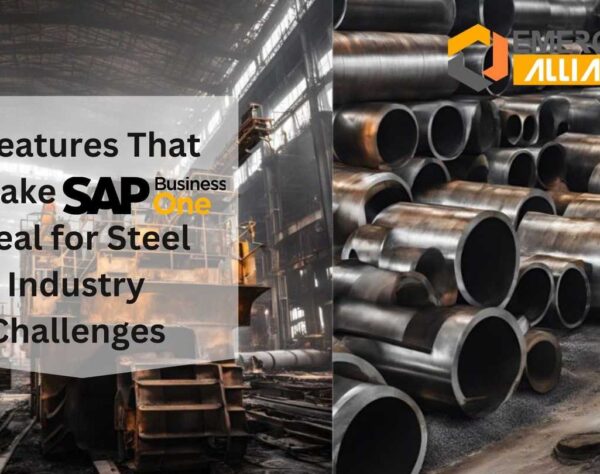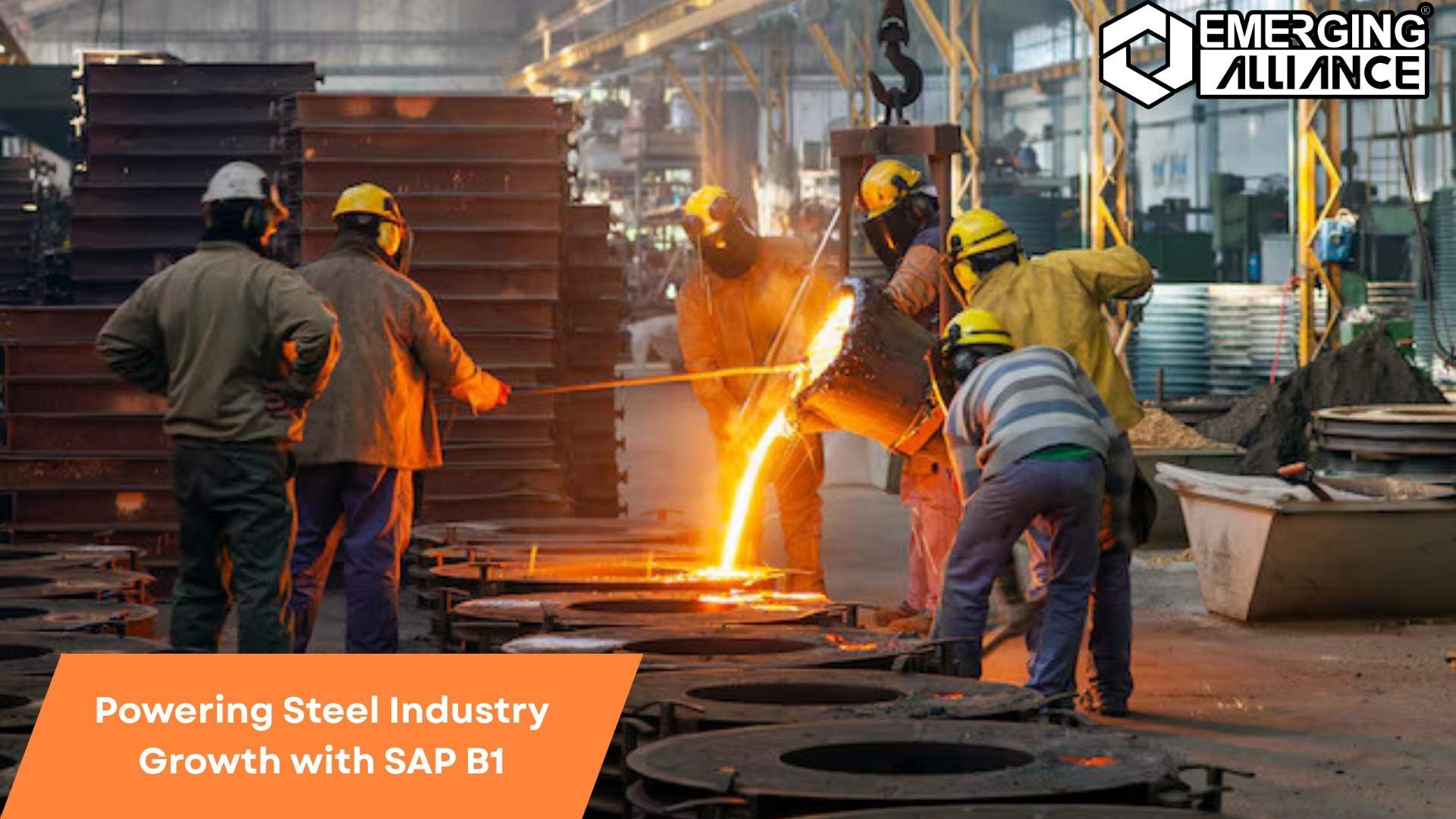
Powering Steel Industry Growth with SAP B1
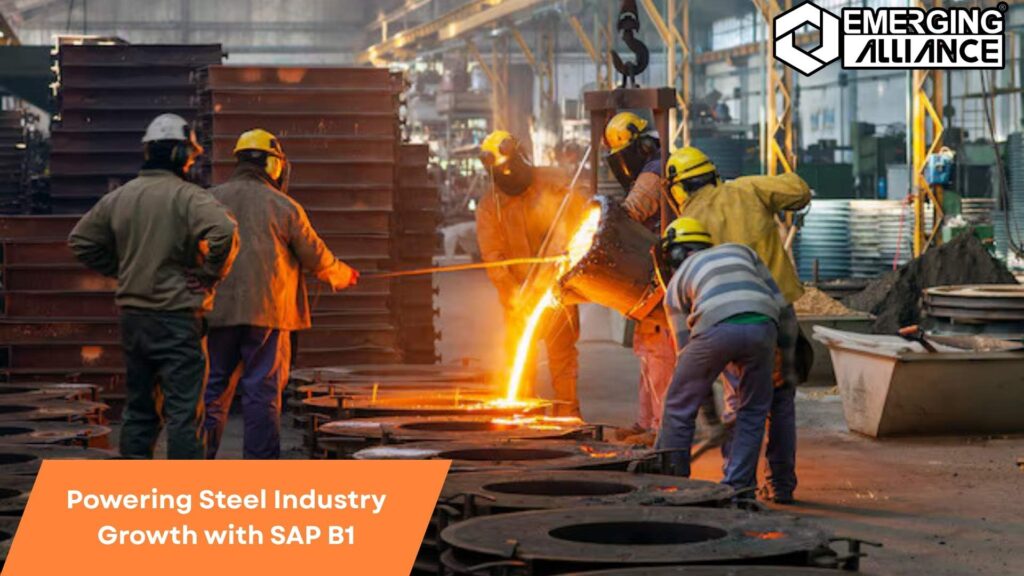
How SAP Business One Powers Efficiency in the Steel Industry
The steel industry operates in a high-stakes environment defined by intense competition, fluctuating raw material costs, and complex supply chain demands. In such a dynamic market, digital transformation is not a luxury—it’s a necessity. SAP Business One (SAP B1) offers steel manufacturers and distributors a powerful ERP platform to gain operational control, streamline processes, and make data-driven decisions that lead to growth.
In this blog, we explore how SAP B1 for Steel Industry empowers businesses to overcome operational challenges and thrive in an increasingly digital economy.
Key Challenges in the Steel Industry
Steel businesses face multiple challenges including:
- Inconsistent production timelines and delivery schedules
- Limited inventory visibility across warehouses and yards
- Unpredictable material costs and supply disruptions
- Complex order fulfillment processes
- Compliance with industry regulations and environmental standards
To navigate these, businesses need an integrated solution like SAP Business One that connects all departments and delivers real-time insights.
Core Features of SAP Business One for Steel Industry
1. Integrated Inventory Management
Track raw materials, semi-finished, and finished goods across multiple locations. SAP B1 provides:
- Real-time inventory tracking
- Batch and serial number management
- Accurate stock forecasting and alerts
2. Production Planning and Control
Steel production involves multiple stages from melting and casting to rolling and finishing. SAP B1 enables:
- Bill of Materials (BOM) configuration
- Work order creation and tracking
- Machine and labor resource planning
3. Quality Control & Compliance
Ensure product quality with:
- Inspection checklists
- Defect tracking and reporting
- Audit-ready documentation for industry compliance
4. Procurement and Supplier Management
SAP B1 centralizes vendor data and helps manage procurement lifecycles:
- Supplier performance analytics
- Automated purchase order generation
- Real-time price comparisons and approvals
5. Financial and Cost Accounting
Integrate accounting with operations for:
- Real-time profitability reports
- Multi-currency and tax-compliant financials
- Budgeting, forecasting, and cost center management
6. Sales and Customer Relationship Management (CRM)
SAP B1 helps manage the entire customer lifecycle:
- Customer order tracking
- Delivery scheduling and route planning
- Integrated communication and quotation tools
7. Business Intelligence & Reporting
Use dashboards and reports to:
- Monitor KPIs across departments
- Analyze historical and real-time data
- Enable data-driven decision making
Benefits of SAP Business One for Steel Companies
Implementing SAP B1 for Steel Industry helps businesses:
- Increase production efficiency
- Reduce operational costs and resource wastage
- Improve on-time delivery and customer satisfaction
- Standardize processes across multiple locations
- Gain end-to-end visibility for better control
Real-World Example: SAP B1 in Action
A mid-sized steel manufacturer implemented SAP Business One to replace legacy systems. Key results included:
- 40% reduction in order processing time
- 25% improvement in inventory accuracy
- Enhanced collaboration between procurement and production departments
Choosing the Right ERP Partner
A specialized ERP solution provider ensures your SAP B1 deployment is:
- Configured to match steel industry workflows
- Integrated with third-party systems if needed
- Supported with ongoing training and process optimization
Partnering with an experienced SAP Business One consultant ensures your system delivers full value.
A Scalable ERP for a Resilient Steel Future
The steel industry is embracing automation, digital analytics, and smarter planning to stay competitive. With SAP Business One, steel manufacturers gain an agile platform that scales with business growth.
From procurement to production, inventory, and finance, SAP B1 provides a single source of truth—making it the ERP of choice for steel industry leaders ready to modernize.
FAQs
1. How does SAP B1 improve inventory management in steel companies?
It offers real-time tracking, batch management, and stock forecasting across multiple locations.
2. Can SAP Business One support complex steel production processes?
Yes. It supports BOMs, work orders, and production planning tailored for multi-stage processes.
3. Is SAP B1 suitable for small and mid-sized steel businesses?
Absolutely. SAP B1 is designed for SMEs and offers flexibility to scale.
4. How does SAP B1 assist in managing raw material procurement?
It automates POs, tracks supplier performance, and provides real-time cost analysis.
5. Does SAP B1 support compliance documentation?
Yes, it includes tools for inspection tracking and audit-ready documentation.
6. Can SAP B1 handle multi-location operations?
Yes. It supports centralized data with role-based access across branches or warehouses.
7. How does SAP B1 integrate with CRM needs?
It offers built-in CRM features like customer tracking, quotations, and order history.
8. What reporting tools are included in SAP Business One?
Dashboards, customizable reports, and real-time KPIs are available.
9. Is SAP B1 a cloud-based solution?
SAP B1 can be deployed on-premise or in the cloud, depending on business needs.
10. How long does it take to train teams on SAP Business One?
Most teams adapt quickly due to its user-friendly interface and role-based modules.





